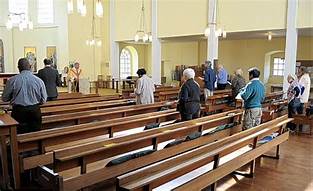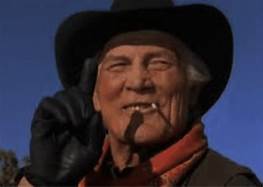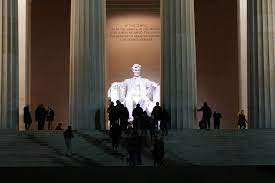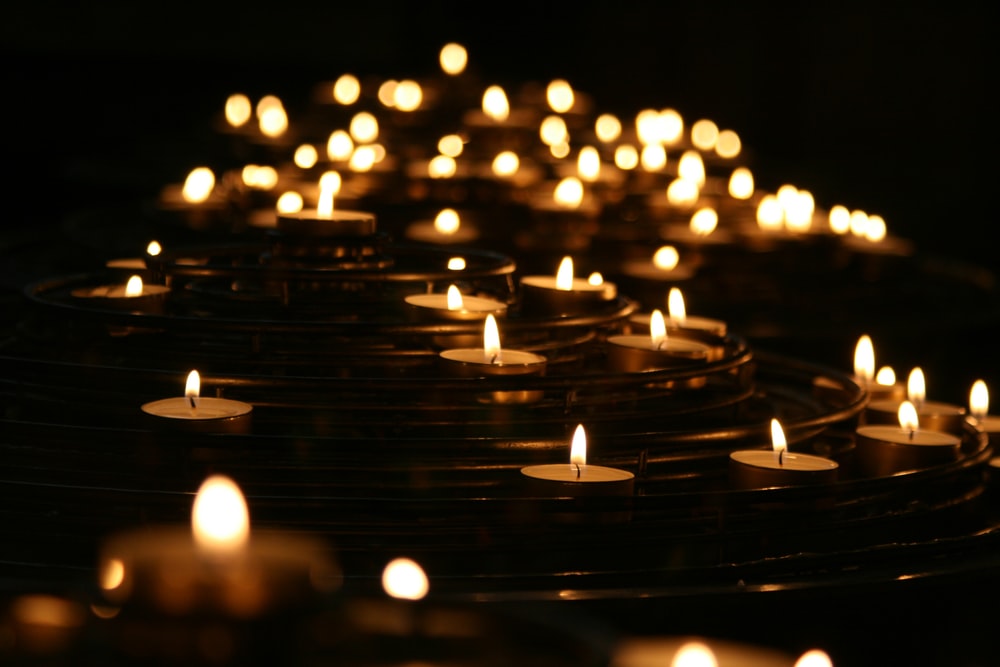Background Passage: Revelation 2:12-17; John 6:48-50
I knew I was in trouble the minute I saw those Girl Scouts standing by the exit to Lowe’s. I just bought some random piece of hardware needed for a home project. As the glass doors slid open, I read the lips of the older one as she whispered to her friend, “Here’s an easy mark!” She had me pegged from the moment she saw me glance at the table.
“Could we interest you in some Thin Mints, Peanut Butter or Samoa cookies,” she asked as they launched into some pre-rehearsed sales pitch about the virtues of helping her troop get to some distant camp in Iowa. I held my palm up to silence them and reached for my wallet. “You had me at Thin Mints,” I replied as I bought three boxes.
Thin mints and orange juice. It just doesn’t get any more sinful than that.
Satan inspired Thin Mints, as devil disks designed to break one’s will to lose weight and live a healthier lifestyle. I buy them knowing I’m perched at the top of a slippery slope. Once I open that first sleeve…taste that perfect blend of minty freshness and chocolate covering infusing that delectable morsel of pure crunch…I kiss all restraint goodbye. One cookie leads to the whole sleeve. One sleeve leads to one box. It is a slippery slope.
I know eating that first Thin Mint has fewer consequences than other poor life choices I’ve made. It is, however, a nice metaphor for the allure and temptation of sin. Taking that first bite out of sin’s apple is a quick ticket out of the garden of grace. Rarely do I jump in to sin with both feet. More often than not I make a subtle compromise with sin that begins my slide down that slippery slope of disobedience. I think Jesus had this in mind when he spoke through John to the early church in Pergamum.
A slippery slope is an idea or course of action which will eventually lead to additional actions until some undesirable consequence inevitably follows. One domino falls causing another to fall and then another and then another.
John, in the Book of Revelation, heard the voice of Jesus sharing a word with seven churches in what is now modern-day Turkey. Though obedient in doing good, the church in Ephesus forgot their love of Christ and their love for one another. They acted out of a sense of obligation rather than love. In Smyrna, Jesus simply encouraged the church to persevere in the face of the coming persecution. To keep the faith despite the hostility around them.
The church in Pergamum found itself flirting with disaster, standing on a slippery slope of compromise…giving in to the subtle sins that opened the door to deeper depravity. The first domino had already fallen as a few had been led astray. One by one others believers succumbed to their influence.
“These are the words of him who has the sharp, double-edged sword. I know where you live—where Satan has his throne. Yet, you remain true to my name. You did not renounce your faith in men, even in the days of Antipas, my faithful witness, who was put to death in our city—where Satan lives.
“Nevertheless, I have a few things against you: You have people there who hold to the teaching of Balaam, who taught Balak to entice the Israelites to sin by eating food sacrificed to idols and by committing sexual immorality. Likewise, you also have those who hold to the teaching of the Nicolaitans.
“Repent, therefore! Otherwise, I will soon come to you and will fight against them with the sword of my mouth.
“He who has an ear to hear let him hear what the spirit says to the churches. To him who overcomes, I will give some of the hidden manna. I will also give him a white stone with a new name written on it, known only to him who receives it.” (Revelation 2:12-17)
Jesus introduced himself to this church as the one with a sharp, double-edged sword, presenting himself as qualified to serve as their judge and jury. The believers in Pergamum did so many things well, despite the harsh culture around them. Jesus praised them for being an oasis of faith surrounding by hostile desert. A light in a dark world.
An historic capital of Asia, Pergamum served as the intellectual center of the region, surpassed in influence only by Athens and Alexandria. The city stood as a religious center with temples, shrines and altars dedicated to Zeus and other Greek gods, including Asklepios, the god of healing. As a result of this particular god, one might consider Pergamum the Mayo Clinic of its day.
To make matters worse for the church, Pergamum embraced the idea of the imperial cult even before Rome did. Its citizens built the first temple to Caesar Augustus in AD 29, proclaiming him a living god. Pergamum became the birthplace of emperor worship. Failure to worship the emperor was a crime punishable by death. Antipas, one of the early church leaders in Pergamum, refused to bow before the emperor and was martyred for his faith.
“I know where you live,” Jesus said. He knew their circumstances. He knew they lived in the shadow of Satan’s throne. Jesus was empathetic to their situation. Temptations and pressure to sublimate their faith for the sake of self-preservation were intensely felt. Surely Antipas was not the sole believer killed by the emperor’s sense of self-importance. One must assume that other Christians lost their lives.
Their faithfulness unto death caught Jesus’ attention. You face death every day, he said, “Yet you remain true to my name.” Despite the ever-present danger to their lives, they would not forsake the name of Jesus.
What a spectacular testimony. Nothing could persuade them to renounce Jesus. Jesus lifted up the church in Pergamum for being faithful in that which mattered most. Sadly, the story doesn’t end there.
Despite their insistence on not bowing down to the emperor, some of them stood on that slippery slope. Some people in the church had, in fact, already taken the plunge. If you’ve just received a word of praise from heaven, the last word you want to hear next is “Nevertheless.” The tone of the passage changes dramatically from one of commendation to condemnation.
“Nevertheless, I have a few things against you.”
Though they were faithful in the big thing, they let the little things seduce them. Some of the folks could not stop at one Thin Mint. They ate one, then ate another and another.
Sin wraps itself in attractive packaging. Covers its hideousness. Disguises its affects. Surrounded by the allure of sin, some of the Christians at Pergamum yielded to temptation. Jesus’ reference to Balaam is an Old Testament Jewish moral tale warning against listening to the siren songs of those who would forget to whom they belonged. Scripture tells us Balaam found a way to seduce Israel away from God, not in some explosive act of disobedience, but by inching step by step toward disobedience until sin’s dominos started to fall one right after another.
In ancient Israel’s case they violated God’s laws by eating meat offered to idols and embraced the sexual immorality prevalent in their culture. I don’t know if these were the specific sins of the Pergamum Christians, but they began to be disobedient in the little things. They confessed a faith in Christ, but didn’t live like it on a daily basis.
In addition, some among the congregation In Pergamum fell victim to false teaching. The Nicolaitans taught a twisted distortion of the gospel. Subtle deviations from gospel that made disobedience permissible. What they practiced was what Dietrich Bonhoeffer called “cheap grace.” Grace that only emphasizes the good or easy parts of the gospel without the truth regarding the more difficult aspects of true discipleship.
Jesus reminded them there is only one solution to sin. He called these wayward Christians to repent. To turn away from the little things they’ve been doing wrong and get their life right with God. Get off that slippery slope and live again the life in Christ to which they had been called.
There are certainly times in my life where I feel like a citizen of Pergamum. To my recollection, I’ve never denied my relationship to Jesus. Never renounced my faith in him. Though challenged from time to time, I can say with Antipas, “He is my Lord.” I am faithful in the BIG thing.
Man, can I identify with those men and women in Pergamum who found themselves on the slippery slope to sin. It’s just so easy to take the first wrong step and find yourself on a path you never intended to take. What we focus on or fret over become or idols, substituting for our dependence on God. It feels easier to walk the well-travelled road of convenience than the narrow path of righteousness. Faith, we feel, just shouldn’t be this hard. So, we compromise. We give in.
Even a cursory look at the actions and beliefs of many Christians yields evidence that they swallowed the lies of the world hook, line and sinker. Sadly, every foray into the shadow is another step down a slippery slope that leads to additional actions until some undesirable consequence inevitably follows. I know. I’ve been there.
Jesus closed his letter to the church in Pergamum with a series of promises to those who overcome the slippery slope despite having to claw their way back up the muddy hillside into the arms of Jesus.
To those overcomers, he offers bread, a stone and a name. I love this metaphor as explained by a pastor friend of mine.
John likely remembered the conversation Jesus had with a crowd he had just miraculously fed. Awed by the miracle and wanting more, they followed Jesus around the Sea of Galilee asking for more. He told them this.
“I am the bread of life. Your fathers ate the manna in the wilderness and they died. This is the bread that comes down from heaven so that one may eat of it and not die. I am the living bread that came down from heaven. If anyone eats of this bread, he will live forever. ” (John 6:48-50)
Jesus is the bread of life. The all-sustaining, eternal manna from heaven. In him we have all we need. We don’t need what the world offers.
He also offered a white stone. The meaning may be less clear, but most commentaries point to the judicial courts that may have handed a white stone to those declared innocent. Other scholars suggested that the white stone may have signified an invitation to a wedding.
Either idea fits within the context of this passage. God’s grace declares the repentant heart innocent of falling down that slippery slope, wiping the slate clean by the forgiveness purchased at the cross. It could be that those who repent find themselves invited again to the feast, to rejoice in a renewed relationship with Jesus.
I like that thought because the stone has my name written on it. It has your name written on it. When we present that stone to Jesus, he knows our name. It stands as a personal invitation to share an intimacy with Jesus that we might otherwise miss.
The symbolism is powerful. Eternal provision and divine satisfaction. A permanent transformation from guilt to innocence. Individual intimacy with the Father.
Those with an ear to hear are told to listen to what Jesus was telling the Christians in Pergamum. He calls us to stand firm. Most of us don’t struggle too much with the faith confession. We struggle with daily conduct, the seduction of compromise.
A look at the church in Pergamum begs the question. Are we also susceptible to the same spiritual schizophrenia? Willing to defend the faith, but failing to see the moral compromises we make?
Let’s pray it is not so. Put the Thin Mints away. Avoid the slippery slope.
To every overcomer, eat a little manna, take hold of that white stone with your name on it and accept the invitation to live in right relationship to the one who loves you so much that he gave his life to compensate for every time you skated that slippery slope.









